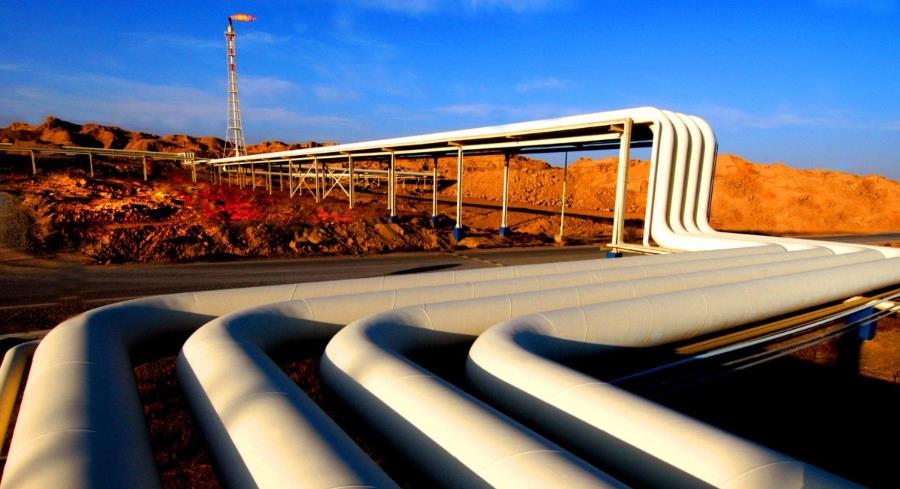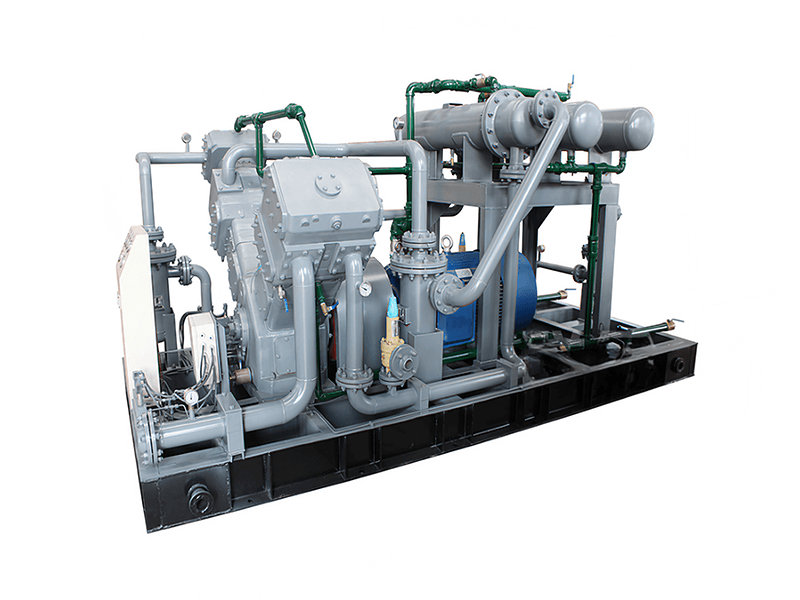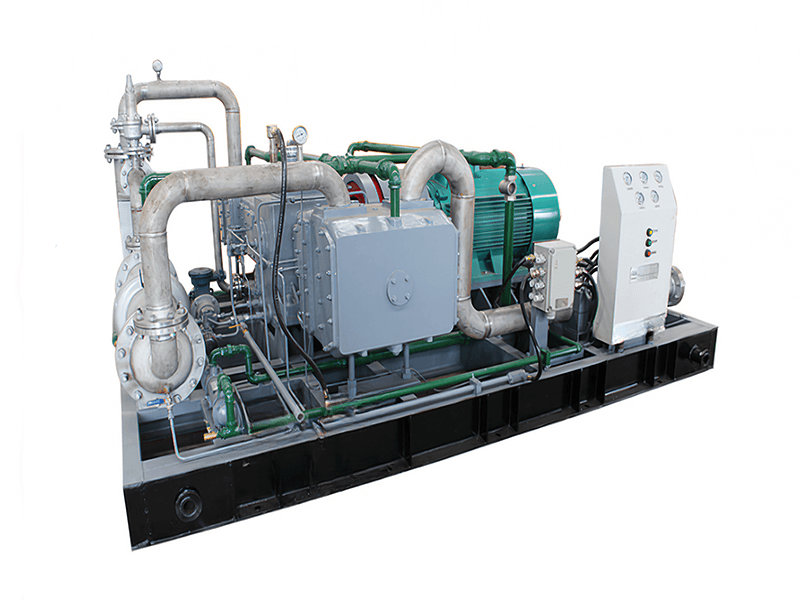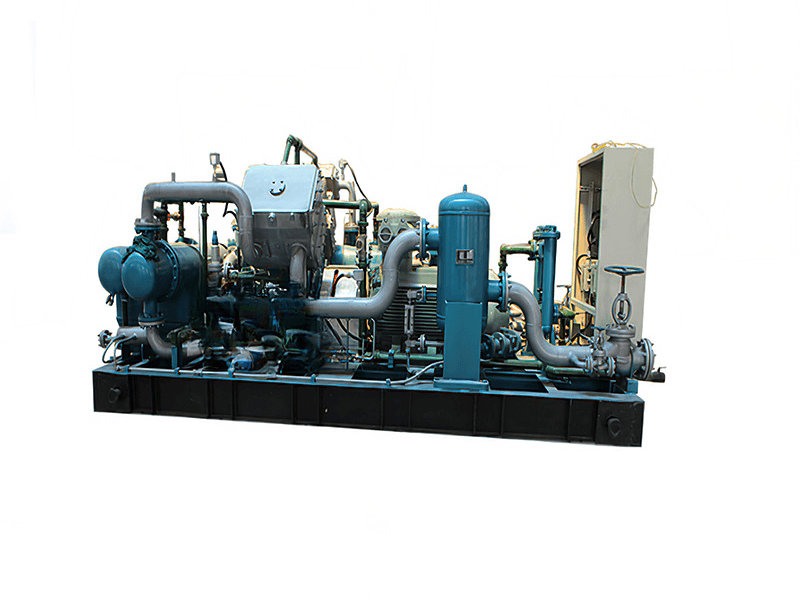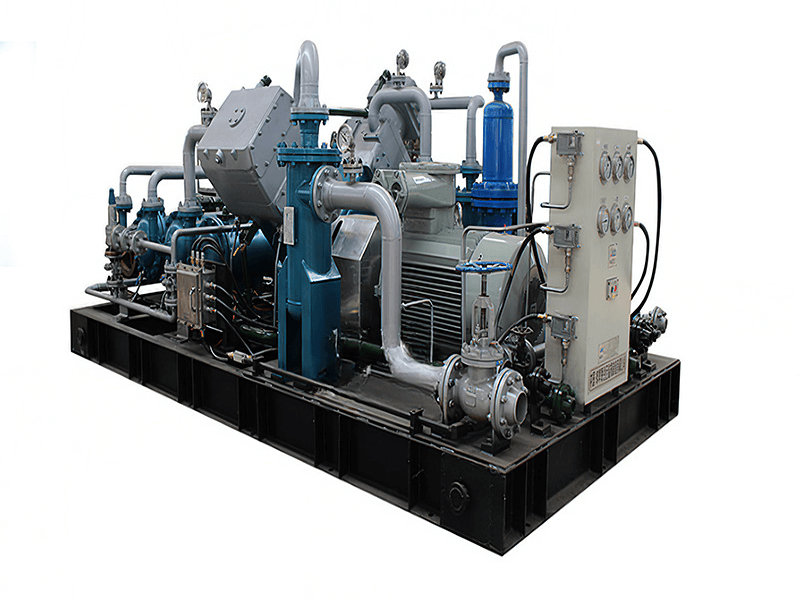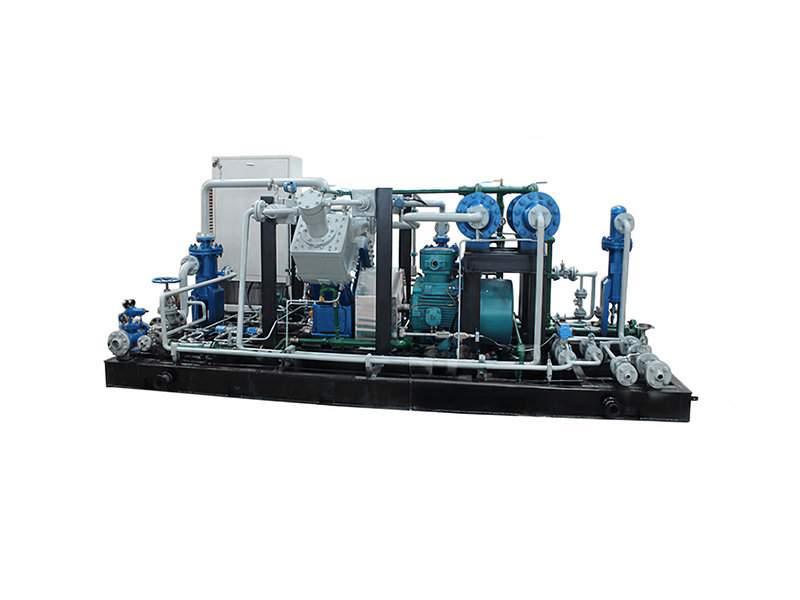A nitrogen compressor is a type of gas compressor specifically designed for compressing nitrogen gas. It is used in various industrial applications where high-pressure nitrogen gas is required. Nitrogen compressors take in ambient air, remove other gases and impurities, and compress the remaining nitrogen to the desired pressure level.
Faults or issues that can occur with nitrogen compressors include:
1. Overheating: Excessive heat buildup can occur due to factors such as inadequate cooling, insufficient lubrication, or high ambient temperatures. Overheating can lead to reduced compressor efficiency, increased wear on components, and potential system shutdowns.
2. Oil Contamination: Nitrogen compressors often use oil for lubrication. Oil contamination can occur due to factors like oil degradation, improper filtration, or seal leakage. Oil contamination can affect compressor performance, reduce efficiency, and potentially contaminate the nitrogen gas.
3. Pressure Loss: Pressure loss can occur due to leaks in compressor seals, fittings, or valves. These leaks can result in reduced efficiency, decreased output pressure, and increased energy consumption.
4. Vibration and Noise: Excessive vibration and noise can be indicators of mechanical problems within the compressor. Causes of vibration and noise include misalignment, unbalanced rotating parts, worn bearings, or damaged components. Excessive vibration and noise can lead to equipment failure if not addressed promptly.
5. Valve Issues: Faulty valves can cause problems such as inadequate compression, poor sealing, or inefficient gas flow. Valve issues can result from wear, deposits, or misalignment. Proper maintenance and regular inspections are necessary to address valve-related faults.
6. Motor or Drive System Failures: The motor or drive system powering the compressor can experience faults, such as motor overload, electrical issues, or mechanical failures. These faults can disrupt compressor operation and require immediate attention from qualified technicians.
7. Contaminant Buildup: Nitrogen compressors can encounter issues related to the buildup of contaminants, including dust, dirt, or moisture. Contaminants can impact compressor performance, reduce efficiency, and potentially lead to corrosion or damage.

8. Control System Malfunctions: Faulty control systems can result in improper pressure regulation, inconsistent operation, or failure to respond to changing demands. Control system malfunctions may stem from electrical issues, sensor failures, or software problems.
9. Lack of Maintenance: Neglecting regular maintenance can lead to various faults in nitrogen compressors. Inadequate lubrication, dirty filters, worn-out components, or improper adjustments can all contribute to decreased performance and reliability.
10. Safety Concerns: Faults in nitrogen compressors can pose safety risks, such as overpressure situations, leaks, or sudden shutdowns. Safety features, including pressure relief valves, emergency shutdown systems, and proper training for personnel, are essential to mitigate potential hazards.
11. Seal Leakage: Faulty or worn-out seals can lead to gas leakage in the compressor system. Seal leakage can result in decreased efficiency, loss of pressure, and potential contamination of the nitrogen gas.
12. Clogged Filters: If the filters in the compressor system become clogged with debris, dust, or contaminants, it can restrict the flow of gas and reduce the compressor's performance. Regular filter maintenance and replacement are necessary to prevent this issue.
13. Abnormal Noise or Vibrations: Unusual noises or excessive vibrations in the compressor can indicate mechanical problems or component failures. These issues may arise from misalignment, damaged bearings, loose parts, or worn-out components. Prompt investigation and repair are crucial to prevent further damage.
14. Excessive Oil Consumption: Nitrogen compressors that use oil lubrication may experience excessive oil consumption. This can occur due to factors such as oil leaks, seal failures, or improper oil management. Monitoring oil levels and investigating any unusual consumption patterns is important to maintain proper lubrication and prevent damage to the compressor.
15. Inadequate Cooling: Insufficient cooling can cause the compressor to overheat and result in decreased performance and potential system failures. Factors such as insufficient airflow, malfunctioning cooling systems, or blockages in heat exchangers can contribute to inadequate cooling.
16. Electrical Issues: Nitrogen compressors rely on electrical systems for operation. Electrical faults, such as wiring problems, motor failures, or control panel malfunctions, can disrupt the compressor's operation and require electrical troubleshooting and repairs.
17. Corrosion: Nitrogen compressors, especially those operating in humid or corrosive environments, are susceptible to corrosion. Corrosion can affect the performance and lifespan of the compressor, leading to leaks, component failures, and reduced efficiency. Proper corrosion protection measures and regular inspections are necessary to mitigate this issue.
18. Incorrect Sizing or Selection: Faults can arise if the nitrogen compressor is not properly sized or selected for the specific application requirements. Inadequate flow capacity, inappropriate pressure ratings, or mismatched components can lead to inefficiencies, premature wear, and system malfunctions.
It's important to address faults promptly through regular maintenance, inspections, and proper troubleshooting by qualified technicians. Adhering to manufacturer guidelines, following recommended maintenance practices, and ensuring the compressor is operated within specified operating parameters will help minimize faults and maximize the reliability and performance of the nitrogen compressor.
To avoid common faults in nitrogen compressors, consider the following preventive measures:
1. Regular Maintenance: Implement a comprehensive maintenance program for the nitrogen compressor, following the manufacturer's guidelines and recommendations. This includes routine inspections, lubrication, filter replacements, and component checks. Regular maintenance helps identify and address potential issues before they escalate into major faults.
2. Proper Lubrication: Ensure that the compressor's lubrication system is functioning correctly and that the appropriate lubricant is used. Follow the manufacturer's instructions for lubrication intervals and type of lubricant. Proper lubrication helps reduce friction, wear, and the risk of overheating.
3. Adequate Cooling: Ensure that the compressor has proper cooling systems in place. Check and clean cooling fins, radiators, and heat exchangers regularly to maintain optimal airflow and heat dissipation. Monitor temperature levels and address any issues promptly to prevent overheating.
4. Correct Filtration: Maintain clean and efficient filtration systems to prevent debris, dust, and contaminants from reaching sensitive compressor components. Regularly inspect and replace filters as recommended by the manufacturer to prevent clogging and maintain proper gas flow.
5. Regular Inspections: Perform routine inspections of the compressor system, including seals, valves, fittings, and connections. Look for signs of leaks, corrosion, wear, or damage. Detecting and addressing issues early can prevent more significant faults and ensure the reliability of the compressor.
6. Proper Installation and Alignment: Ensure that the nitrogen compressor is installed correctly, following the manufacturer's guidelines and specifications. Proper alignment of the compressor components, such as motor, coupling, and drive system, reduces stress, vibrations, and premature wear.
7. Monitor Vibration and Noise: Regularly monitor the compressor for abnormal vibrations and excessive noise. Unusual vibration or noise can indicate mechanical problems or misalignment. If detected, investigate and address the source of the issue promptly to prevent further damage.
8. Training and Operator Awareness: Provide proper training to the operators responsible for the nitrogen compressor. Ensure they are familiar with the equipment, its operation, and the importance of regular maintenance. Encourage them to report any unusual observations or concerns promptly.
9. Environmental Considerations: Protect the compressor system from harsh environmental conditions, such as corrosive gases, high humidity, or extreme temperatures. Implement appropriate corrosion prevention measures and ensure the compressor is installed in a suitable location.
10. Compliance with Manufacturer Specifications: Follow the manufacturer's specifications and guidelines for the nitrogen compressor, including operating parameters, load limits, and maintenance schedules. Adhering to these recommendations ensures optimal performance and longevity of the compressor.
By implementing these preventive measures and maintaining a proactive approach to compressor maintenance, operators can minimize faults, extend the lifespan of the nitrogen compressor, and ensure reliable and efficient operation in the natural gas industry.
